Argentine American
| |||||||||||||
| Total population | |||||||||||||
|---|---|---|---|---|---|---|---|---|---|---|---|---|---|
|
248,823[1]  | |||||||||||||
| Regions with significant populations | |||||||||||||
| Florida, Texas, California, Illinois, New York, Connecticut | |||||||||||||
| Languages | |||||||||||||
| American English, Spanish, Italian, German, French | |||||||||||||
| Religion | |||||||||||||
|
Predominantly Roman Catholic Church Protestantism, Judaism, Agnosticism, Atheism, Others | |||||||||||||
| Related ethnic groups | |||||||||||||
| Hispanic and Latino Americans, Italians, Spaniards, French, Germans | |||||||||||||
Argentine Americans (Spanish: argentino-americanos, norteamericanos de origen argentino or estadounidenses de origen argentino),[2][3][4][5] are Americans whose full or partial origin is in the nation of Argentina.
History
Prior to the 1970s, the Argentines that emigrated to the United States were classified in the category of "Other Hispanics", therefore, Argentine immigration statistics do not exist until that time.
Early Argentines who settled in the United States arrived primarily in the 1960s, looking for greater economic possibilities. The majority of them held academic degrees, and many were medical doctors and scientists. However, immigrants in the late 1970s arrived fleeing the political persecution of the Dirty War. They numbered 44,803 people.[6]
This new immigrant group had an educational level lower than earlier immigrants. The majority of Argentine immigrants are directed to metropolitan areas, especially New York, where 20 percent of them lived in the 1970s. In the 1980s, that percentage increased to just over 23 percent, and the 1990 U.S. Census recorded that New York City had 17,363 Argentine Americans and Los Angeles, 15,115.[6]
Immigration to New York City was popular because of the existing Argentine and Italian communities, as many Argentines are of Italian origin. With the goal of helping its Argentine population, the government of the city created several organizations such as the Argentine-American Chamber of Commerce, which promotes business ventures between Argentina and the United States. The 1990 U.S. Census recorded 92,563 Argentines, evidencing that nearly half of the Argentine immigrants arrived in the last two decades alone.[6]
Afer the nineties, Southern California and Florida became leading destinations for new immigrants from Argentina. According to the 2010 Census, out of the over 200 000 Argentine Americans recorded, it is estimated that Los Angeles and Miami have over 50 000 Argentine Americans each, followed by the New York area.
Socioeconomics
The profile of the Argentine American population is generally similar to the overall U.S. population's. Among the key differences, however, is educational attainment. Argentine Americans exhibit a rate of 39.5% of holders of bachelor's, graduate, or professional degrees, contrasted with the 27.5% of the overall U.S. population. The difference is more marked among women: 40.2% for Argentine American females, and 26.7% for all U.S. females.[7] Another major difference is the fact that 69.1% of Argentine Americans are immigrants, which contrasts sharply with the 12.6% of the overall U.S. population.[7]
Argentine Americans had a median household income of $55,044. Again, this is higher than the national figure, which was $50,740.[7]
Demographics
The most noticeable Argentine American populations are in the metropolitan areas of Florida (mainly South Florida), Texas (mainly Houston and Dallas), California, Illinois, New York, New Jersey, Connecticut, and Western Pennsylvania.
States
The 10 states with the largest population of Argentines (Source: 2010 Census):
-
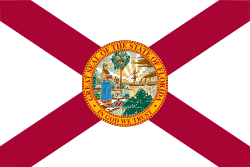 Florida - 56,260 (0.3% of state population)
Florida - 56,260 (0.3% of state population) -
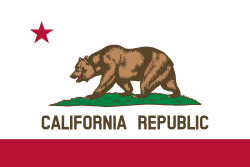 California - 44,410 (0.1% of state population)
California - 44,410 (0.1% of state population) -
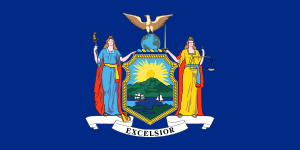 New York - 24,969 (0.1% of state population)
New York - 24,969 (0.1% of state population) -
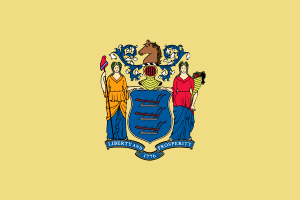 New Jersey - 14,272 (0.2% of state population)
New Jersey - 14,272 (0.2% of state population) -
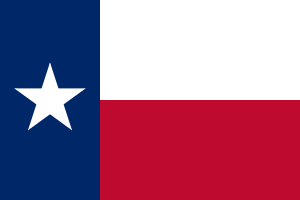 Texas - 13,831 (0.1% of state population)
Texas - 13,831 (0.1% of state population) -
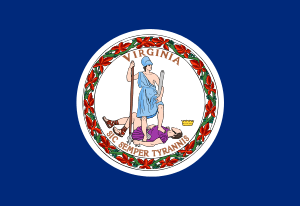 Virginia - 6,263 (0.1% of state population)
Virginia - 6,263 (0.1% of state population) -
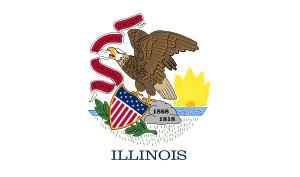 Illinois - 5,294 (less than 0.1% of state population)
Illinois - 5,294 (less than 0.1% of state population) -
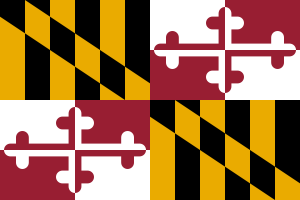 Maryland - 5,138 (0.1% of state population)
Maryland - 5,138 (0.1% of state population) -
 Utah - 4,639 (0.2% of state population)
Utah - 4,639 (0.2% of state population) -
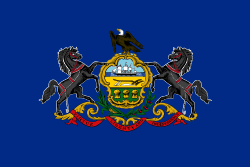 Pennsylvania - 4,269 (less than 0.1% of state population)
Pennsylvania - 4,269 (less than 0.1% of state population)
Cities
The 10 cities with the largest population of Argentines (Source: 2010 Census):
- New York, NY - 15,169 (0.2%)
- Los Angeles, CA - 8,570 (0.2%)
- Miami, FL - 4,891 (1.2%)
- Miami Beach, FL - 4,030 (4.6%)
- Houston, TX - 2,440 (0.1%)
- Chicago, IL - 1,743 (0.1%)
- Hollywood, FL - 1,626 (1.2%)
- Aventura, FL - 1,579 (4.4%)
- San Diego, CA - 1,322 (0.1%)
- Pembroke Pines, FL - 1,147 (0.7%)
Ethnic background
The ancestry of the majority of the population of Argentina is primarily of Italian and Spanish ancestry (see demographics of Argentina) with significant German, British, French, Amerindian (primarily Mapuche, Qulla, Wichí, and Toba), Slavic, and Semitic (Jewish and Arab) components.[8]
Large communities
| Hispanic and Latino Americans |
|---|
|
National origin groups
|
|
Political movements |
|
Related national groups |
|
Languages |
|
Ethnic groups |
|
Lists |
Only data for immigrant Argentine Americans are available. The twenty U.S. communities of 500 or more people which have the highest percentages of Argentine immigrants are:[9]
- Miami Beach, FL 4.4%
- Sunny Isles Beach, FL 4.1%
- Plantation Mobile Home Park, FL 4.0%
- Bay Harbor Islands, FL 3.5%
- North Bay Village, FL and Key Biscayne, FL 3.4%
- Deer Park, CA 3.3%
- Harbor Hills, NY 3.0%
- Surfside, FL 2.6%
- Lauderdale-by-the-Sea, FL 2.4%
- Acton, CA 2.3%
- Aventura, FL 2.1%
- Islandia, NY and The Crossings, FL 2.0%
- Thomaston, NY and Ojus, FL 1.9%
- Doral, FL 1.8%
- East Richmond Heights, CA 1.7%
- Lebanon, IL 1.6%
- Mayland-Pleasant Hill, TN 1.5%
- Sunnyslope, CA, Herricks, NY, and La Habra Heights, CA 1.4%
- Lawrenceville, NJ and Cutler, FL 1.3%
- Gardiner, NY, Miami Shores, FL, Flower Hill, NY, and Groton Long Point, CT 1.2%
Notable Argentine Americans
- Carlos Alazraqui
- Marcelo Balboa
- Alexis Bledel
- Fernando Caldeiro
- Andrés Cantor
- Gregory Chaitin
- Roy Cortina
- Italo Jose Dejter
- Ariel Dorfman
- India Eisley
- Fernando Fiore
- Julie Gonzalo
- Martín Gramática
- Enrique Gratas
- Albert Hammond, Jr.
- Ed Iacobucci
- Kevin Johansen
- Fernando Lamas
- Lorenzo Lamas
- Julio "Jimmy" Ledezma
- Paz Lenchantin
- Cecilia Lueza
- Pablo Mastroeni
- Raul Midón
- Eduardo Montes-Bradley
- Gerardo L. Munck
- Jacqueline Obradors
- Alex Omes[10]
- Andrés Oppenheimer
- César Pelli
- Liliana Porter
- Claudio Reyna
- Gustavo Santaolalla
- Eduardo D. Sontag
- Sebastian Spreng
- Adrián Suar
- Carlos Sueldo
- Nancy Sutley
- Diana Taurasi
See also
- Argentine Australian
- Demographics of Argentina
- Hispanic and Latino Americans
- Latin American migration to the United Kingdom
- White Hispanic and Latino Americans
- White Latin American
References
- ↑ 1.0 1.1 US Census Bureau 2012 American Community Survey B03001 1-Year Estimates HISPANIC OR LATINO ORIGIN BY SPECIFIC ORIGIN retrieved September 20, 2013
- ↑ Evolución y Magia. El Camino del Hombre – Janis Roze (Spanish)
- ↑ Vuelve distinto y renovado (Spanish)
- ↑ Se inauguró en la ciudad de Miami la Avenida República Argentina – Semanario Argentino (Spanish)
- ↑ Un latino montando El Diablo en Anaheim – Hoy Los Angeles (Spanish)
- ↑ 6.0 6.1 6.2 Everyculture: Argentine Americans. posted by Julio Rodriguez. Retrieved in December 11, 2011, to 12:20 pm.
- ↑ 7.0 7.1 7.2 "United States - Selected Population Profile in the United States (Argentinian)". 2007 American Community Survey. United States Census Bureau. Retrieved 2008-11-30.
- ↑ CELS - Informe 1998
- ↑ "Top 101 cities with the most residents born in Argentina (population 500+)". city-data.com. Retrieved 2008-07-16.
- ↑ Cohen, Howard (2015-01-20). "Ultra co-founder, Miami nightlife fixture Alex Omes dies at 43". Miami Herald. Retrieved 2015-01-31.
External links
- American Blog (Spanish)
| ||||||||
| ||||||||||||||||||||||||||||||||||||||||||

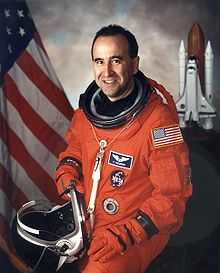









.jpg)
